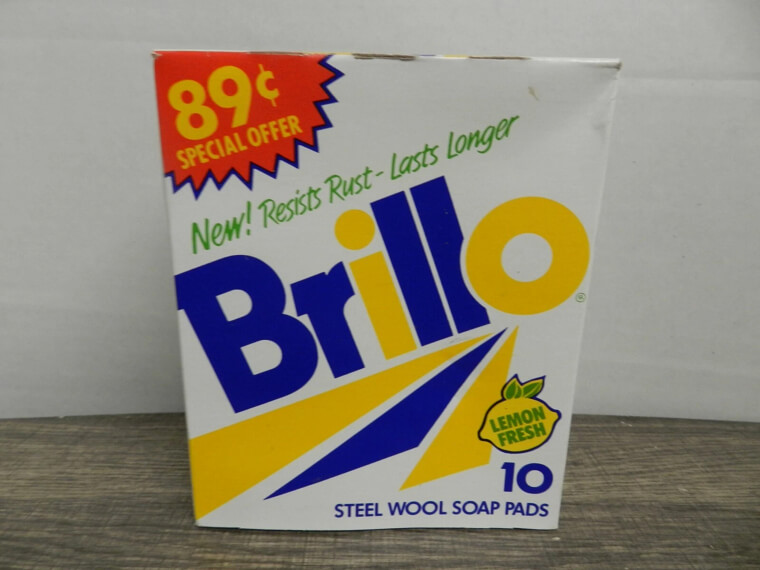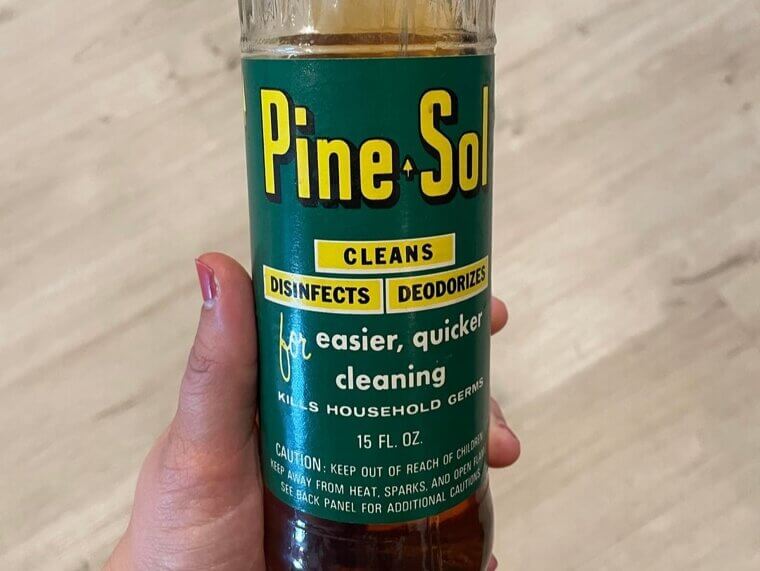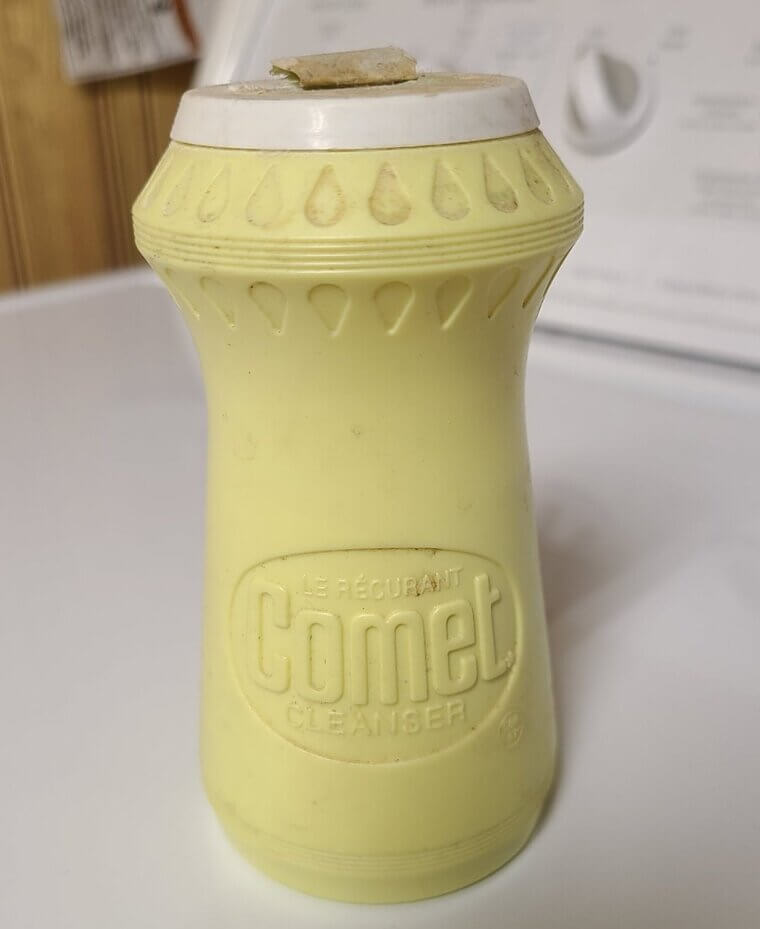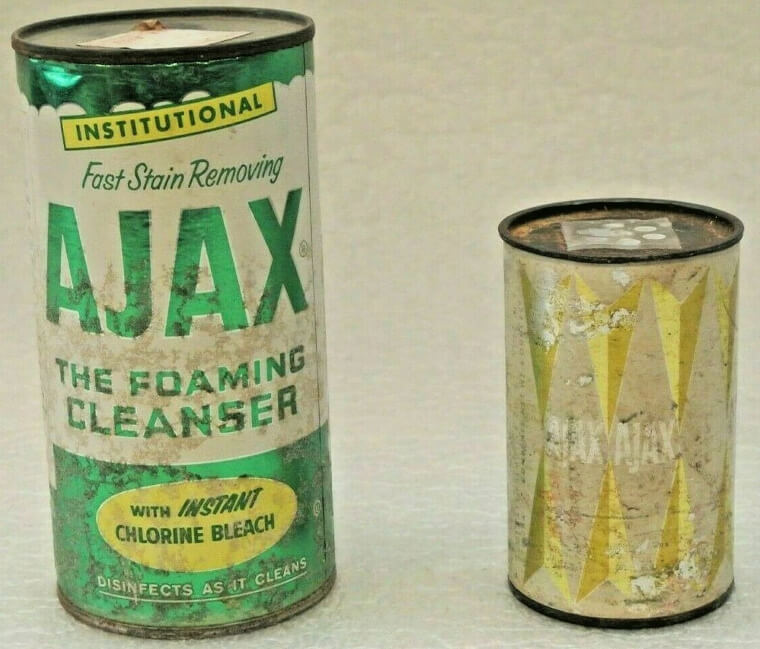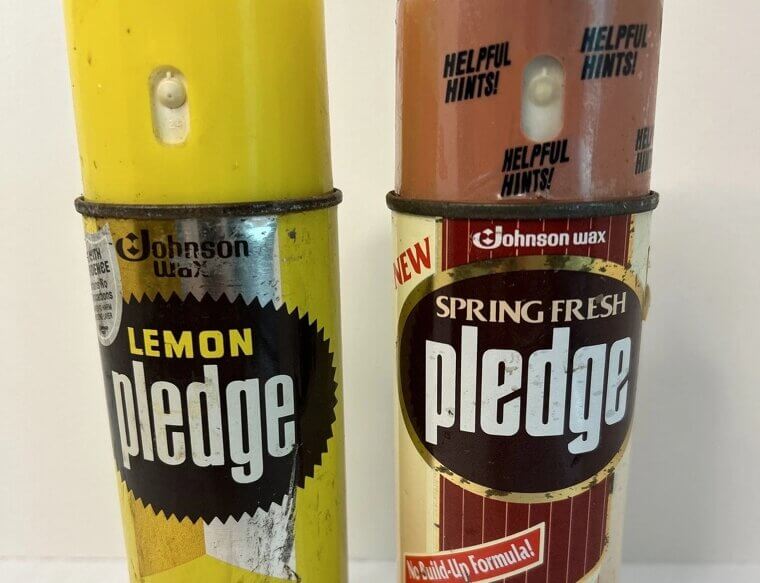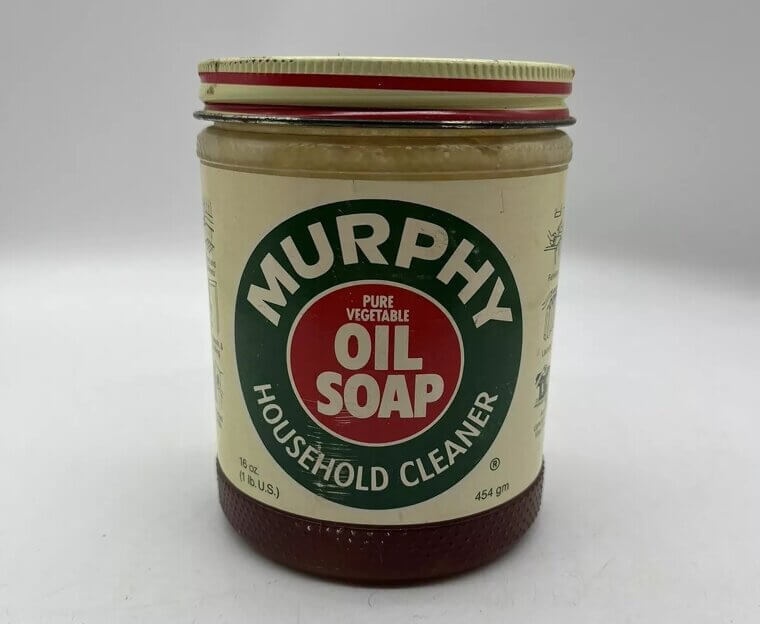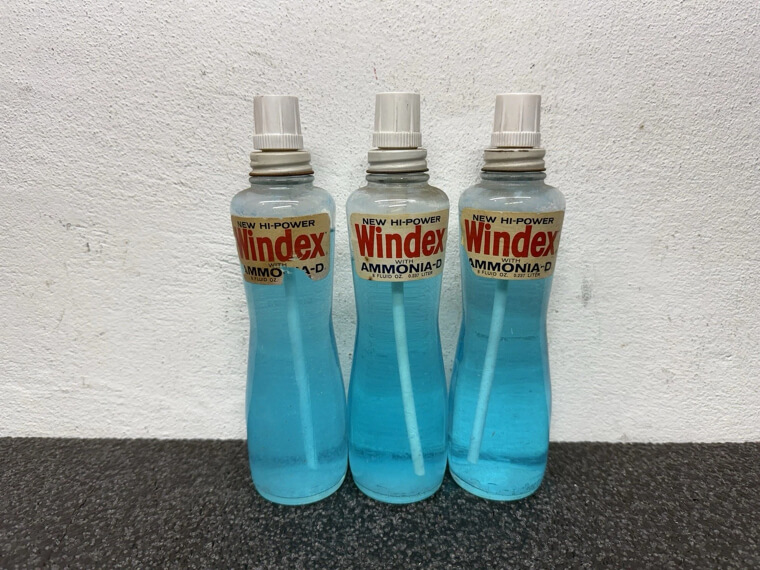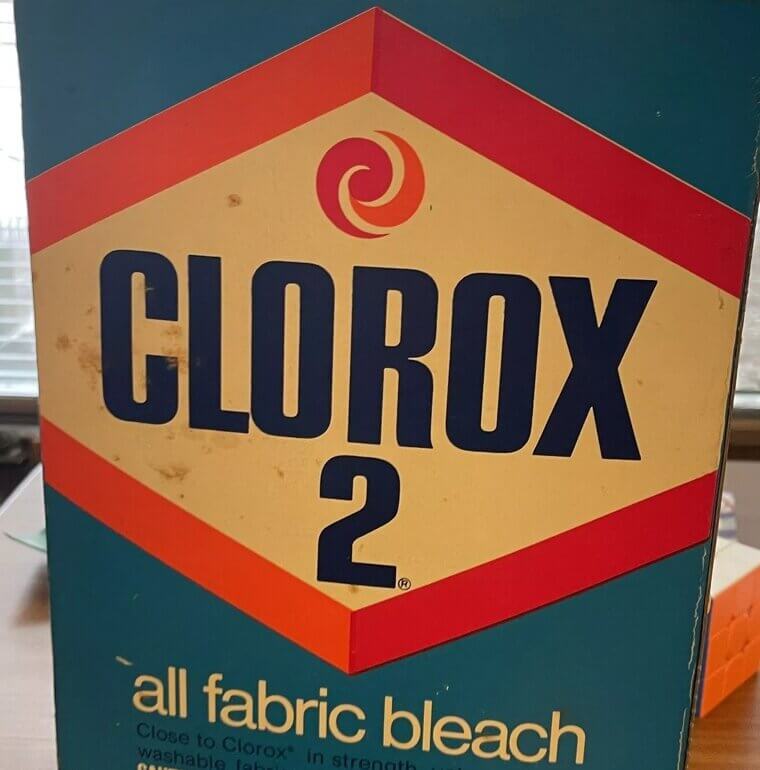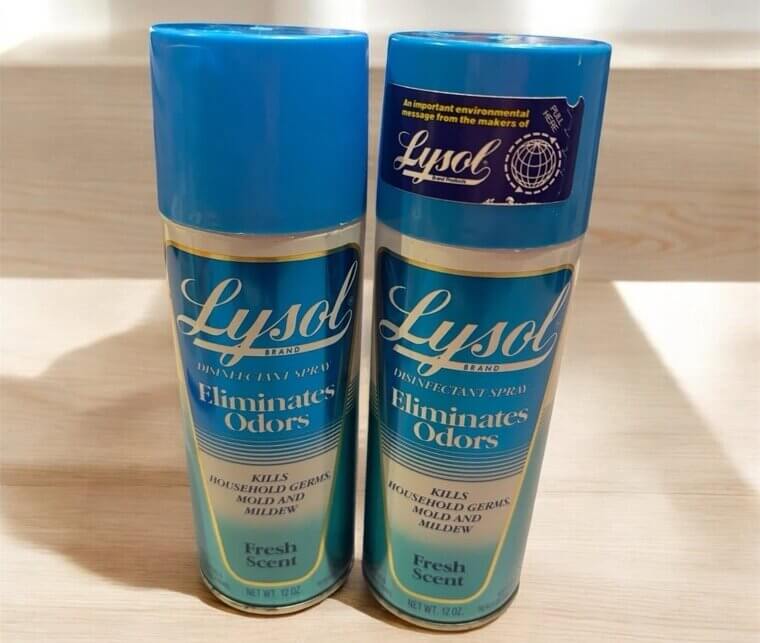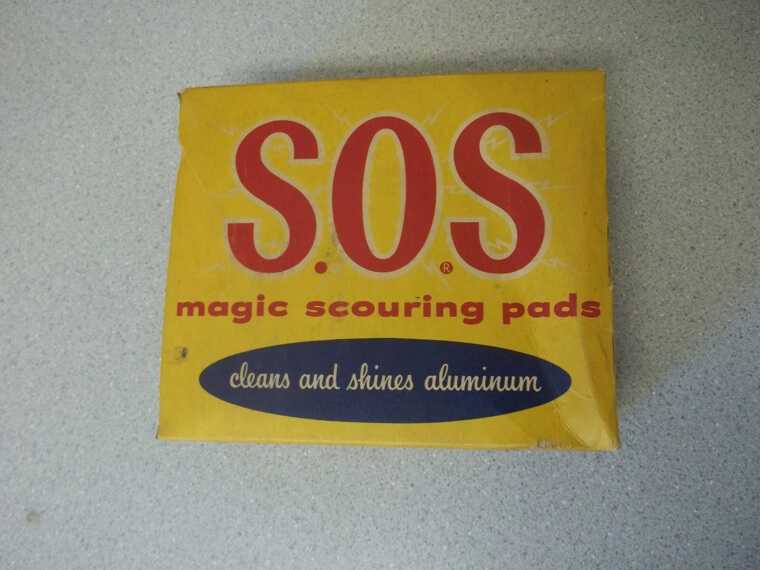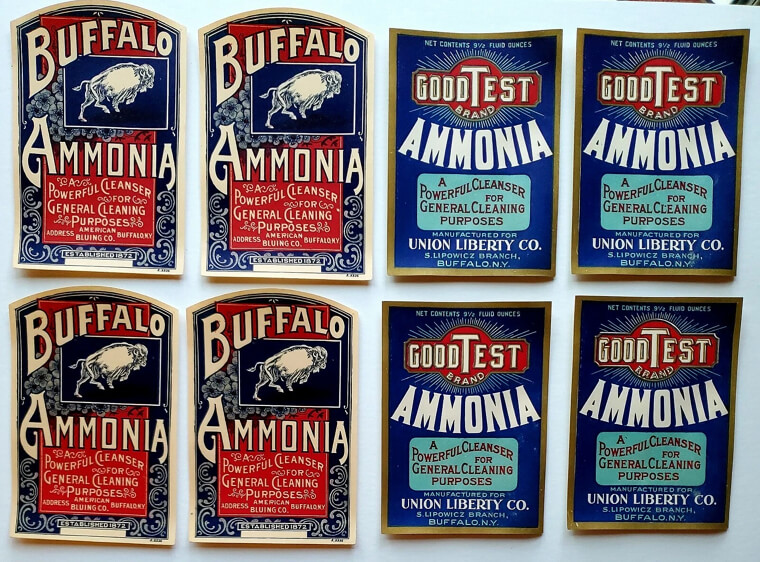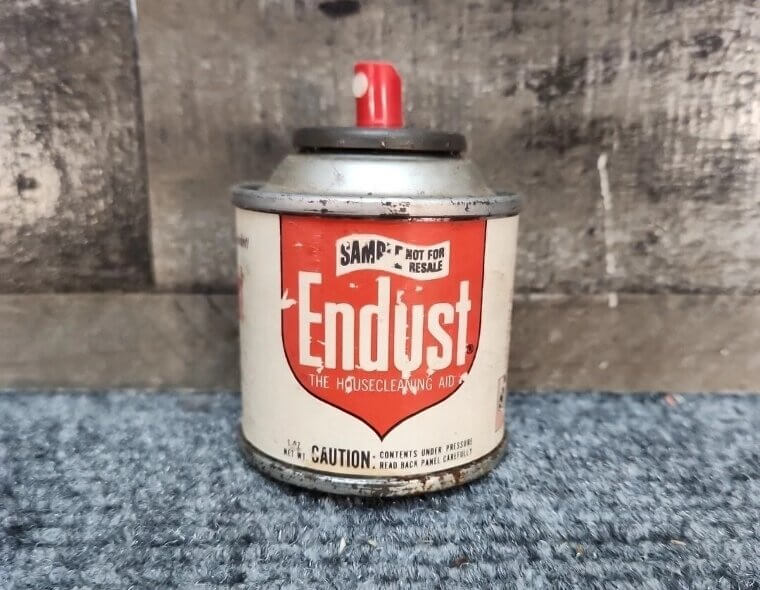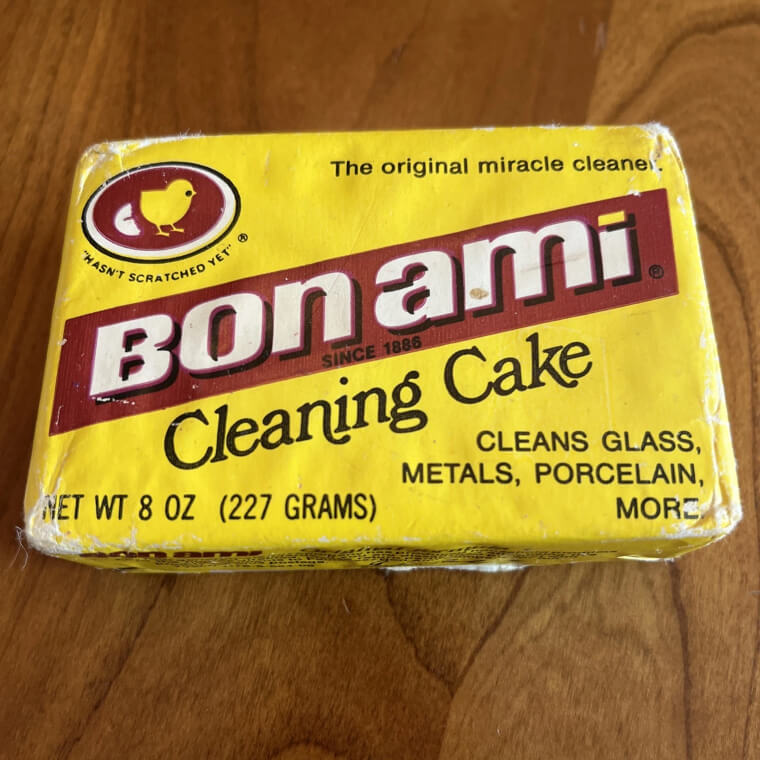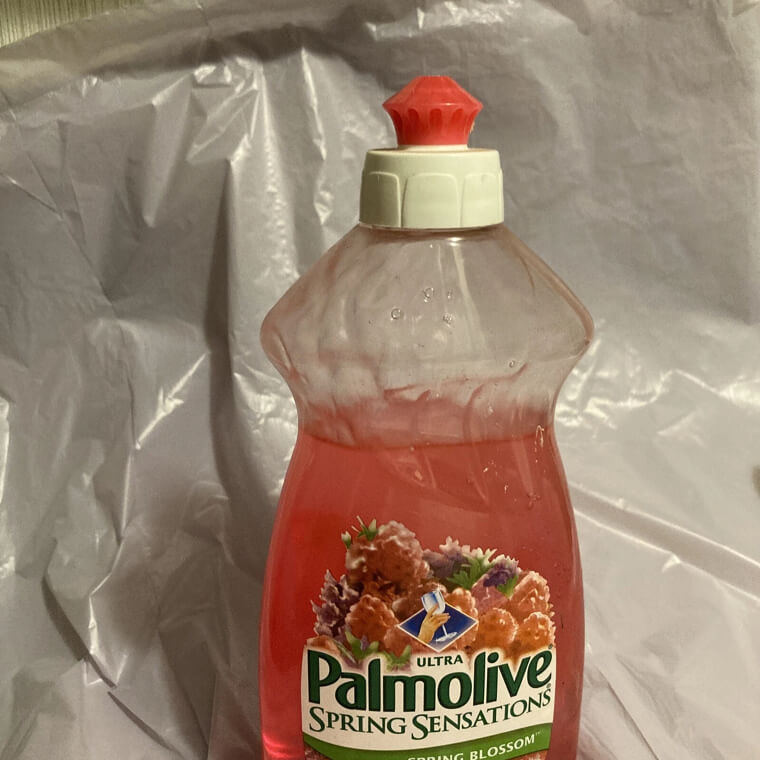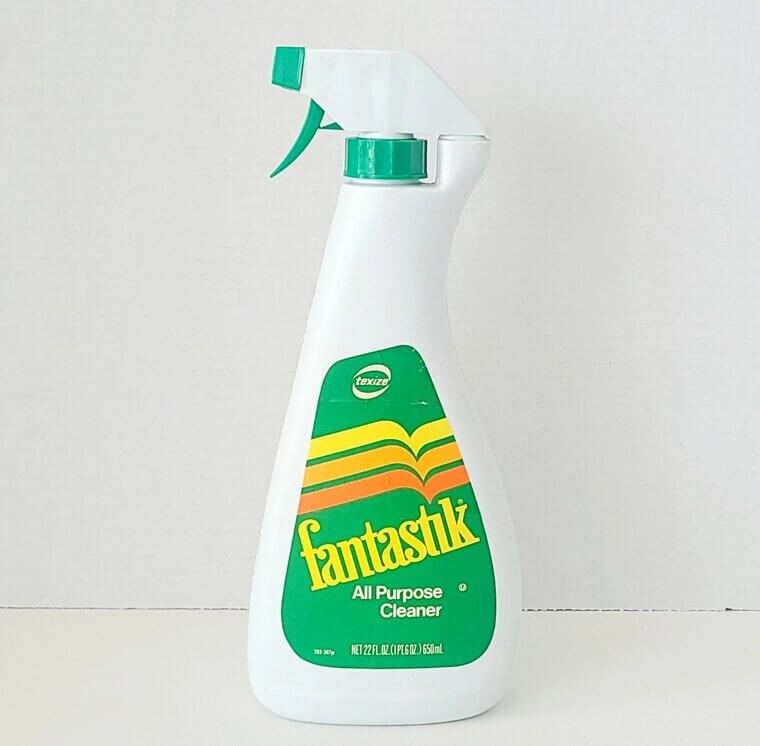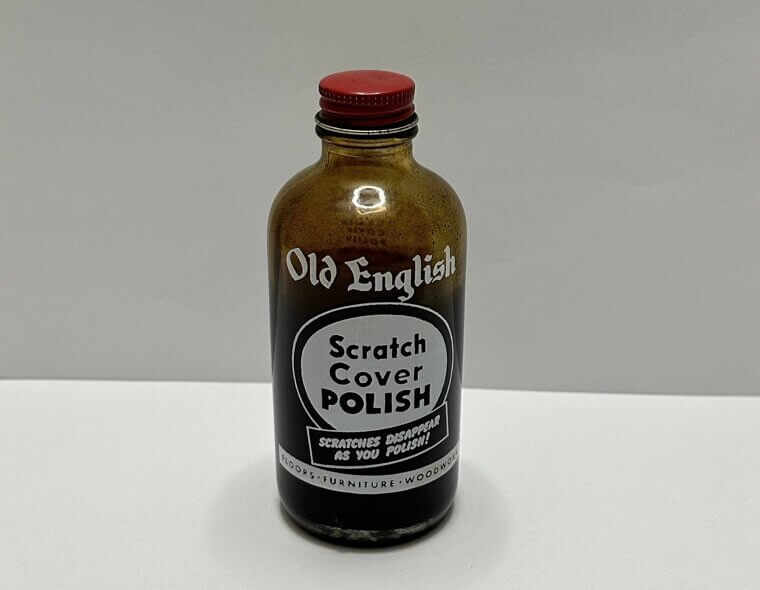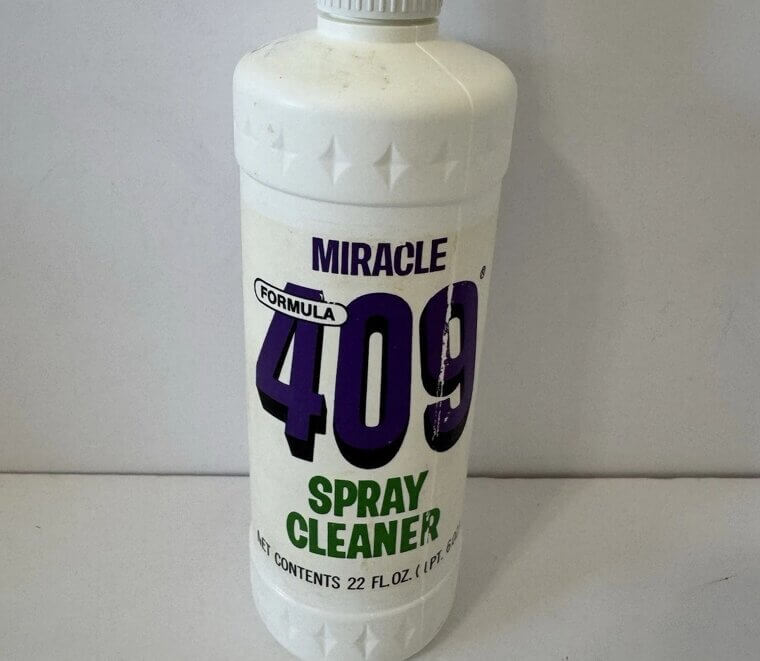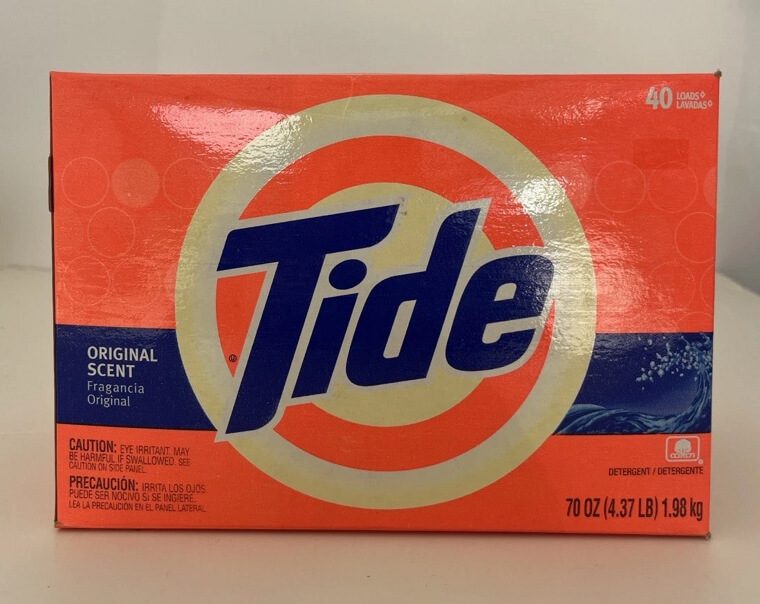Brillo Pads
Brillo Pads were tiny steel wool miracles that removed everything, including the will to cook again. They were rough, durable, and always rusted within a week, yet somehow they were worth it. Moms used them to scrub pans until they shone like new, even if the process took half a day. The pads left little metallic traces on your hands and sink, a small price for absolute cleanliness. Brillo Pads didn’t just clean cookware; they taught patience. Every scrape was proof that hard work paid off, even if your reward was just another dirty pan tomorrow.
Pine-Sol
If your childhood memories include the smell of Pine-Sol, you probably associate it with both cleanliness and mild fear. It was the product that told you your mom meant business. One capful in a bucket of hot water could clean the entire house and half the driveway. The scent lingered for days, a mixture of pine forest and punishment. Parents swore by it because it worked, and because it made visitors believe they lived inside a disinfected tree. Pine-Sol cleaned floors, walls, countertops, and occasionally whatever your father spilled in the garage. It was the universal solvent for both dirt and disobedience. Even now, one whiff can transport Boomers straight back to Saturday mornings when cartoons were drowned out by the sound of a mop slapping linoleum.
Comet Cleanser
Comet was the gritty green powder that lived under every sink and could clean anything short of moral failings. Its scrubbing power was unmatched, and so was its ability to leave your hands feeling like sandpaper. Moms sprinkled it into sinks and tubs like fairy dust, then attacked with a sponge until the porcelain shone. The can had a reassuring rattle that meant serious cleaning was about to begin. Bathrooms sparkled, kitchens gleamed, and no one dared complain about the smell because it meant you weren’t helping. Comet made the impossible shine again, often at the cost of a layer of enamel. It was tough, cheap, and strangely satisfying to use. Parents didn’t just trust it; they feared a world without it.
Ajax Powder Cleanser
Ajax was Comet’s slightly fancier cousin, often chosen by mothers who liked a little flair with their abrasives. The name itself sounded powerful, like a superhero for sinks. A sprinkle, a scrub, and years of grime disappeared with a satisfying hiss. Ajax also doubled as an air freshener, since its sharp, lemony scent could be detected from down the street. It promised to “stronger than dirt,” and it was. If you grew up in the 60s or 70s, you probably remember its commercials more than its label, with clean countertops that gleamed so brightly they could signal aircraft. Ajax didn’t just clean; it announced that the house was now pure enough for surprise company, which, of course, was the goal of every mother on a Saturday afternoon.
Lemon Pledge
Nothing said “company’s coming” like the unmistakable smell of Lemon Pledge. Mothers didn’t just dust furniture; they polished it to a level of shine where fingerprints feared to land. Coffee tables, dressers, and dining sets glowed with lemon-scented radiance. The spray hissed dramatically from its can, coating every surface in a fine mist of citrus and pride. Children were forbidden from touching anything afterward, turning living rooms into off-limits museums of cleanliness. Pledge didn’t just clean wood; it announced that your family owned nice things, even if they didn’t. For many Boomers, that lemon scent still triggers the urge to stand very still until the smell fades.
Murphy Oil Soap
Murphy Oil Soap was the natural alternative before “eco-friendly” became a marketing term. It came in a simple bottle, smelled faintly of trees, and could make any piece of wood furniture look brand new. Parents used it sparingly, as if it were holy water for floors and cabinets. Its gentle shine was proof that you cared about your home’s wooden surfaces, not just the guests who walked on them. The scent filled the air with calm authority, less aggressive than Pine-Sol but equally memorable. Murphy Oil Soap made cleaning feel less like work and more like caretaking. Every household that used it seemed to have the same warm, slightly glossy floors, and the same sense of quiet satisfaction afterward.
Windex
Windex could clean glass, mirrors, and, according to your parents, probably open your pores. It was the blue miracle liquid that never failed. One swipe with a paper towel, and the world became clearer. Moms trusted it with everything reflective, and sometimes with surfaces that weren’t supposed to be. The bottle itself was iconic, its bright color symbolizing transparency and order. There was no substitute. A streak-free shine was the standard of success, and a smudge was a moral failure. Every family had at least one bottle, half-empty and always slightly sticky from overuse. If you could see your reflection afterward, the job was done. If not, you were told to spray again.
Clorox Bleach
Bleach was the nuclear option. It was poured carefully, with reverence and fear. Every parent knew that one splash could ruin clothes, but they also knew it could disinfect the world. The smell alone signaled that germs were about to meet their maker. It brightened whites, sanitized bathrooms, and occasionally ruined bath towels when someone “helped” incorrectly. Bleach demanded respect. You didn’t breathe too deeply, and you didn’t argue with its results. When laundry came out blindingly white, parents stood taller. It wasn’t just cleaning; it was chemistry. The faint whiff of bleach remains one of the strongest symbols of parental authority ever bottled.
Lysol Spray
Lysol was the invisible shield that protected every home from germs real or imagined. Mothers sprayed it into the air with the confidence of a scientist conducting an experiment. It filled rooms with a scent that announced both safety and slight discomfort. It was used on doorknobs, sinks, shoes, and anything handled by small children. For some reason, it was also sprayed into the air after guests left, as though cleanliness could erase awkward conversation. Lysol was more than disinfectant, it was emotional reassurance in aerosol form. If your mom owned more than one can, you lived in a fortress of hygiene.
SOS Pads
If Brillo Pads were persistence, SOS Pads were power. They had soap built right in, a concept that felt like futuristic magic. Add water, and they hissed to life. Grease vanished, grime surrendered, and dishes gleamed. The pads were slightly blue, slightly mysterious, and slightly dangerous to tender fingers. Every kitchen kept a box by the sink, ready for burnt casseroles or “mystery pans” found in the oven. The pads disintegrated over time, leaving behind little clues that cleaning had occurred. SOS Pads weren’t glamorous, but they got results fast, which was why parents bought them by the dozen.
Ammonia
Ammonia was the cleaning product that made the whole house smell like a laboratory. It worked wonders but required bravery. Parents used it for windows, tile, and mysterious household tasks they never fully explained. The odor could knock you back, but so could the shine it left behind. Ammonia was for the serious cleaner, the one who knew safety goggles might be wise but used it anyway. It represented an older kind of cleaning pride, the belief that suffering slightly proved you cared. The house always sparkled afterward, and everyone quietly hoped no one would ever spill it again.
Endust
Endust was the dusting spray that made every home smell faintly of polished ambition. A few quick sprays, and furniture gleamed like it had been professionally restored. Moms loved it because it didn’t just remove dust, it repelled it. That meant fewer chores in theory, though somehow the dust always returned by Tuesday. The aerosol hiss was oddly satisfying, and the result was smooth, shiny perfection. Kids were told not to sit on freshly Endusted furniture, which guaranteed they would. It was the product that made living rooms sparkle and slip simultaneously.
Bon Ami
Bon Ami was the underdog of the cleaning world, a humble powder in a plain can that proudly declared “hasn’t scratched yet.” It was gentler than Comet, quieter than Ajax, and preferred by parents who considered themselves refined cleaners. It left surfaces gleaming without the harshness of bleach or abrasives. The name itself sounded polite, like a friend who offered to help with dishes. It was used on sinks, tiles, and delicate surfaces that deserved respect. Bon Ami didn’t seek attention, but everyone trusted it. In a house full of loud, lemon-scented cleansers, it was the calm voice that still got the job done.
Palmolive Dish Soap
Palmolive was the dish soap that promised to be kind to your hands, which was good because you’d be using it for hours. It smelled pleasant, produced endless suds, and made every sink feel like a small ocean of responsibility. Moms poured it generously, certain that more bubbles meant cleaner dishes. It worked, and it also made your hands smell like you’d actually accomplished something. The green liquid was strangely mesmerizing, and the commercials reminded everyone that soft hands were the mark of a true homemaker. Palmolive wasn’t just dish soap- it was domestic diplomacy in a bottle.
Fantastic Spray Cleaner
Fantastic earned its name by being the cleaner that solved everything in one bottle. Grease, dirt, fingerprints- it handled them all. The blue liquid sprayed in fine mist, followed by that satisfying wipe that left nothing but shine. Parents loved it because it made cleaning feel efficient, almost modern. Fantastic belonged to the era of quick solutions and convenience. It didn’t need scrubbing, and it didn’t require mystery powders or buckets of hot water. One spray and wipe, and you could move on with your day. For busy households, it was revolutionary. It was cleaning made simple, which, for Boomer parents, felt like progress.
Old English Scratch Cover
Old English was the secret weapon for every coffee table that had seen too much life. It covered scratches, disguised dents, and made furniture look like it had been well cared for all along. The smell was distinct, the results immediate. It worked so well that it felt like cheating. Parents dabbed it on with soft cloths, stepping back to admire how the wood gleamed again. The bottle looked serious, and so did the people using it. Old English was about respect for things that lasted- solid furniture, family heirlooms, and the art of pretending your kids hadn’t just destroyed them.
409 Cleaner
Formula 409 was the cleaner for parents who liked efficiency and didn’t believe in compromise. It cut through grease, cleaned counters, and left a smell that meant everything was now safe to touch. It had numbers in its name, which made it sound scientific. The spray bottle design was practical, and the results were instant. Parents loved 409 because it saved time, and saving time meant you could clean even more. Every kitchen had a bottle, usually sitting proudly near the sink. Using it was oddly satisfying, a symbol that the day’s chaos was slowly being restored to order.
Tide Laundry Detergent
Tide was the crown jewel of laundry rooms. Its bright orange box promised whiter whites, cleaner clothes, and domestic success. The smell of fresh Tide wafting through the house was as much a comfort as a clean sheet. Moms measured it with precision, believing that the right scoop could determine the outcome of the week. Tide wasn’t just detergent- it was identity. Families swore by it and rarely switched brands. When the clothes came out soft, fragrant, and spotless, everyone knew Tide had worked its quiet magic once again.

